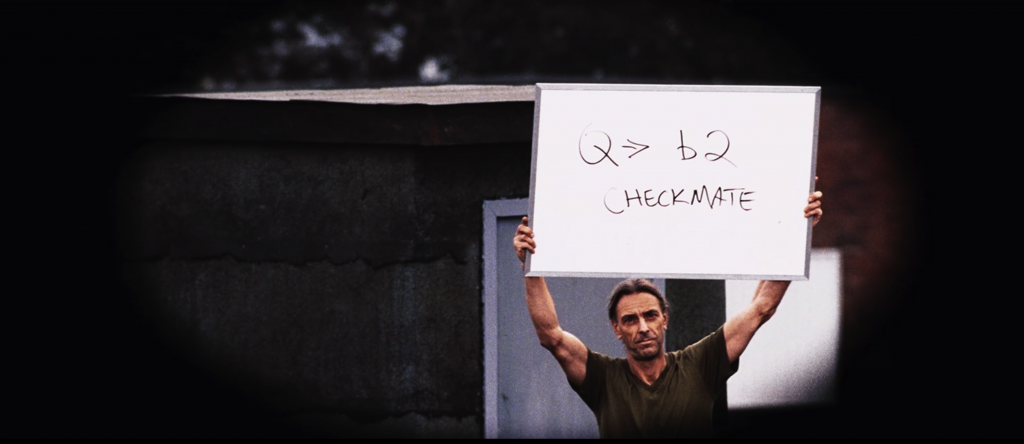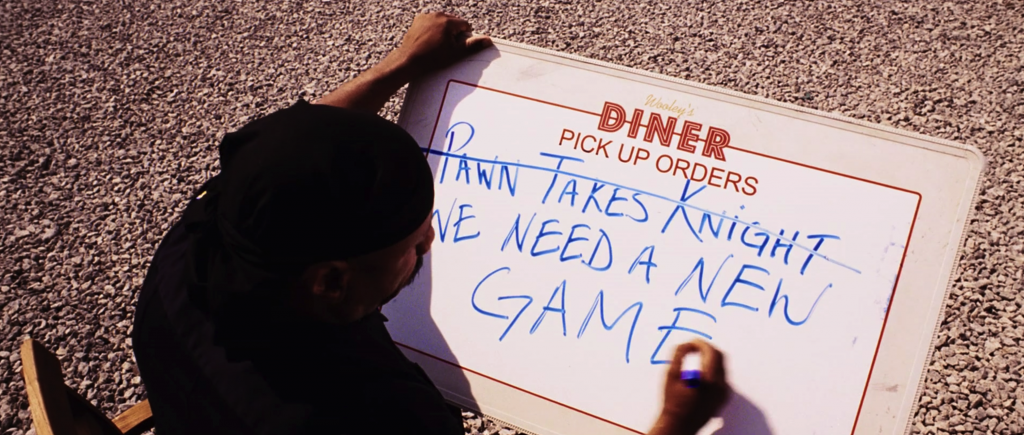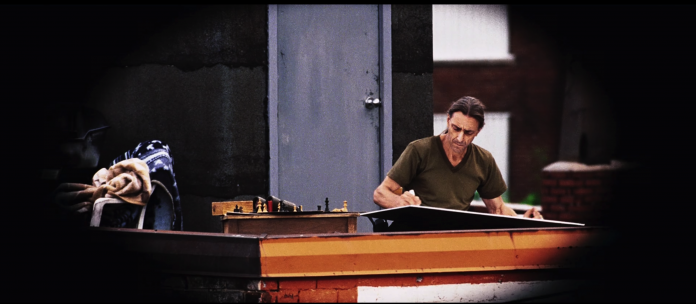Twenty months into the pandemic timeline it hits me: I suffer from remote board gaming fatigue. I’ve caught my limit. I’m out of spoons. Recently I’ve lost my taste for remote, online board gaming.
Online gaming wasn’t a new concept but for most of us remote board gaming was, so when the shock and awe of Covid forced us to sequester we got a crash course. At the start we basked in the honeymoon phase of novelty, choice, and luxury. There were hundreds of games to choose from and online ports of board games did all the setup and upkeep and scorekeeping for you, like friendly and invisible robot butlers. Our group patiently worked out the digital quirks of the Yucata and Boite A Jeux websites, which look like they were built by a Geocities-era wayback machine. I shunned Tabletopia and Tabletop Simulator early on due to the inconsistency of quality control and frustrations created by their twitchy, fiddly, physics-based functionality; being able to flip the table for “funsies” wasn’t quite the cute joke the developers thought it was.
I dusted off Board Game Arena, stunned that it existed in 2012 when I first created the account and stunned again that I only used it for the first time in March 2020 – eight years later. My first BGA session was a four-player game of Dragon Castle with friends across three different states and two different time zones in America. To skip over the gaps of time and space to play a board game was a powerful feeling.
In the 21 months since I’ve sat in on 150+ remote online gaming sessions and logged in hundreds of board game plays, including one-hundred games of Wingspan (my most played remote) and a five-week, white-hot Among Us bender when the game surged in popularity after lockdown. Thanks to remote I’ve played more games with more people than I would have done in real-time and face-to-face. Online gaming permitted me to play with a wider group of friends from alternate time zones, cities, and continents. I’ve made new friends and widened the circle of my gaming community. I was an ideal case study during the remote boardgaming boom spurred on by the pandemic. Playing on our computers with a live Discord video feed gave us the opportunity to see and hear each other as we played. And asynchronous mode meant we could slow-cook a game at our leisure and take turns when we each had time to do so, playing full games over the course of days or weeks. Over the past twenty months remote gaming went from pure necessity to pure joy.
 But like the peaks and valleys of the pandemic, my enthusiasm has started to fade. And this passion drop came invisibly but perceptibly as the months have wore on.
But like the peaks and valleys of the pandemic, my enthusiasm has started to fade. And this passion drop came invisibly but perceptibly as the months have wore on.
Remote gaming does the work for you – but it cuts corners. While it frees me from having to do setup and tear down and in-game bits management and math, these invisible labors mean that dice and tiles and pawns and scores manifest and move onscreen like teleportation BAMFS. Every move is a magic trick; you see that a player has gone from point A to point B but can never trace the route that player took to get there, or map the incremental machinations of the game state as it evolved. It’s like skimming the Cliff’s Notes of the Cliff’s Notes of an in-game turn without details, nuance, or a step-by-step string of logic. In remote gaming you only see the “ta-da” moment of a magic trick, when you prefer to see the entire trick from start to finish. I miss being able to see each player’s granular turn with my own eyes. I learn games and strategies better when I see how players take their turns, and not just the end result.
I’m discovering that learning how to play games remotely is more difficult for me. I learn more easily when I can physically set up a game on the table and see where everything goes. Especially when in tandem with reading the rules themselves. In addition, there’s usually a meta-game, cognitive fog you must pass through to suss out how exactly the digital implementation of a game works. When remote boardgaming you’re not so much learning how to play it, you’re learning how to wrestle with the board game’s remote interface, which is not the same thing.
When I play in-person games our group bakes time into the sessions to teach and learn a game we are about to play. Either from scratch or as a quick refresher. With remote games we are tasked with having to learn the rules on our own and on our own time, apart from the actual remote session.
 Much worse is when remote games are asynchronous – because there is no fixed game session at all, and people are waiting on you to learn the game the instant that the asynch game has been created. Learning a mildly complicated and non-intuitive online game while people are waiting for me to take my first turn stresses me out. I’m on the clock, with homework. Often I just put off learning the rules at all just to get the game started, then spend days or weeks in a game I don’t understand and never get around to learning. On my turns I click around mirthlessly on my turn like I’m stymied in Myst until the game lets me trigger an action – any action will do – and I’m relieved that my turn’s over, but already dreading my next turn like a toxic unread email in my inbox. Lately for my asynchronous games I’m wholly uninvested in whether or not my turns are optimal, competitive, or logical.
Much worse is when remote games are asynchronous – because there is no fixed game session at all, and people are waiting on you to learn the game the instant that the asynch game has been created. Learning a mildly complicated and non-intuitive online game while people are waiting for me to take my first turn stresses me out. I’m on the clock, with homework. Often I just put off learning the rules at all just to get the game started, then spend days or weeks in a game I don’t understand and never get around to learning. On my turns I click around mirthlessly on my turn like I’m stymied in Myst until the game lets me trigger an action – any action will do – and I’m relieved that my turn’s over, but already dreading my next turn like a toxic unread email in my inbox. Lately for my asynchronous games I’m wholly uninvested in whether or not my turns are optimal, competitive, or logical.
Over my years of gaming I’ve learned that of all my friends I am the least interested and invested in playing games in order to win them. My first plays are often “f*ck around and find out,” where I go down narrative rabbit holes or sandbox the different mechanics to learn a game. I’m completely unencumbered with needing to do well during a game, or take clever turns, or score the most points. So remote gaming (and especially asynchronous gaming) contains very little what I value most when playing games – which is the interaction that I have with friends at the table playing a game – in real time and in the same room.
Since March 2020 we have all been playing multiplayer solitaire. By virtue of being remote, our games (and much of our lives) have been rendered multiplayer solitaire. We are all in our own spaces, separated from other players, playing a solo version of the same game. It’s not multiplayer so much as it’s multiple single-player. And it’s taking it’s toll on me.
 Games aren’t just the components and the mechanics and the dice we roll or the tiles we place or the point salads we eat. Remote games leech out any non-gaming downtime between the players from the experience entirely, even when those non-game moments are crucial and make game sessions more memorable. Those non-gaming moments are now in the vacuum of dead space.
Games aren’t just the components and the mechanics and the dice we roll or the tiles we place or the point salads we eat. Remote games leech out any non-gaming downtime between the players from the experience entirely, even when those non-game moments are crucial and make game sessions more memorable. Those non-gaming moments are now in the vacuum of dead space.
Playing remote lately has felt to me like reading a book with no spaces or punctuation between words. Like the current 20+ month Covid timeline my history of remote gaming seems at its worst like an unending, indistinguishable blur.
I suspect my slamming into the remote gaming wall is temporary. A low moment in a strange week – catching feelings during the liminal span of time that both exists and does not exist between Christmas and New Year’s. But the silence is deafening.
In film production when you’re on set and before you leave a location the sound department records “room tone” while the crew is still present. Room tone is the silence of a space, without dialogue or chatter, recorded while the room is still full of people. Because like any live audience in a theater or concert hall the silence of a space while it is full of humanity sounds and “feels” different than the silence of that same space if devoid of people. Silence requires “presence” for it to sound more real. The presence of people, even if they aren’t speaking.
While I am grateful for remote gaming, to me it is gaming without room tone. It lacks the connective tissue of being with my friends and sharing innocuous moments at a table that are non-essential to the game, rules, and winning conditions, yet vital to my joyful memory of the experience. That’s what I miss. That’s why I’m soulsick. And whether or not my remote gaming malaise is just a phase, I’m looking forward to better days and a return to playing more in-person board games.

Have any questions or feedback? Drop us a note in the comments below or email us at contact@goonhammer.com.


